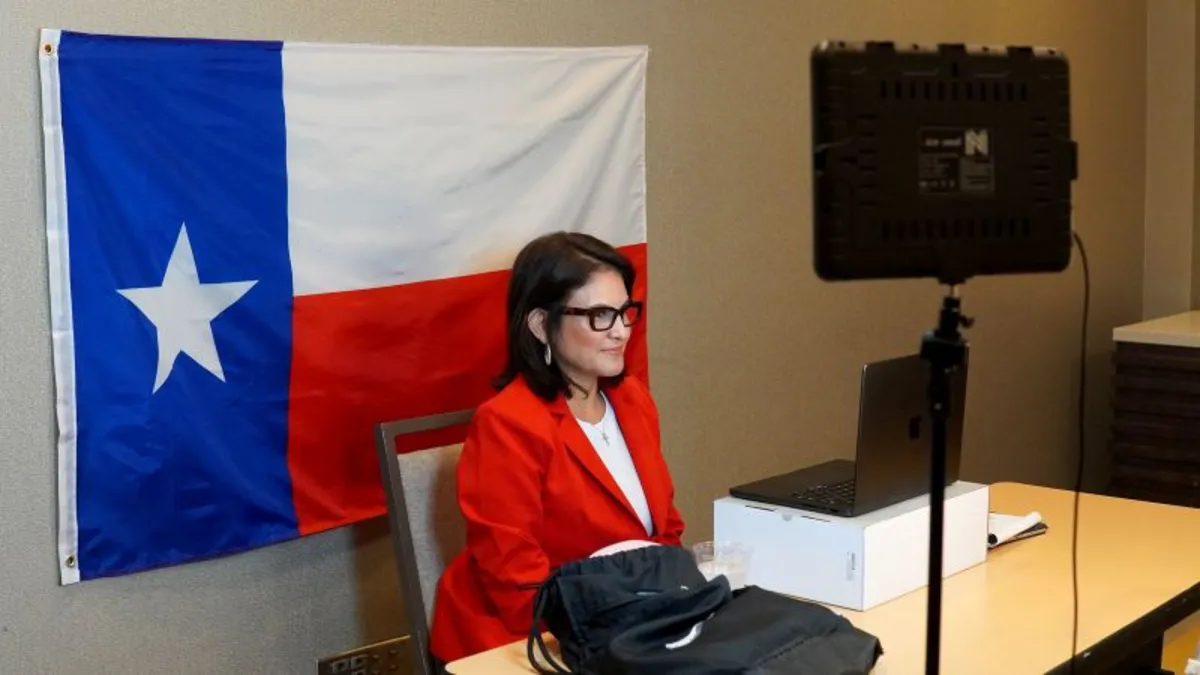
In a bold move to challenge the Republican-led effort to redraw congressional districts, Texas Democratic lawmakers have embarked on a high-stakes journey outside the state. As they confront numerous uncertainties, questions loom large: How long will they remain away? What form of retaliation might they encounter? And most critically, will their strategy prove effective in blocking the passage of the new congressional map?
Despite the serious nature of their situation, mundane concerns such as laundry were temporarily set aside for the lawmakers who found refuge in Illinois. Their hotel, a vast facility adjacent to a convention center located about an hour from Chicago, boasted convenient amenities, including on-site laundry facilities. However, an unexpected bomb threat on Wednesday morning led to an evacuation, forcing lawmakers to change locations and adding another layer of unpredictability to their situation.
A week into their mission to prevent a quorum in the Texas House of Representatives, the Democratic legislators are grappling with uncertainty. Their actions have successfully stalled a fast-tracked plan that could grant Republicans up to five additional congressional seats in the upcoming elections—a significant goal aligned with former President Donald Trump. This maneuver has not only garnered national attention but also shed light on the intricate and often contentious process of how congressional districts are drawn.
The special legislative session is set to conclude in just ten days, yet this milestone is far from a resolution. Texas Governor Greg Abbott has indicated that he will call for “special session after special session” until the Republicans' objectives are achieved. This relentless approach underscores the precarious position of the Democratic lawmakers who face an uphill battle.
Many of the over 50 legislators spread across Illinois, Massachusetts, and New York recall a similar standoff from 2021, which lasted 38 days. During that previous protest, several members wore black-and-white “Let the people vote” T-shirts, symbolizing their resistance. Ultimately, a few lawmakers returned to Austin, enabling Republicans to achieve the quorum necessary to pass sweeping changes to election laws.
This time, the Democrats have come equipped with valuable experience, including how to prepare for an indefinite absence. They are employing heightened security measures, such as refraining from discussing details about their location, even with family members. Representative Barbara Gervin-Hawkins mentioned that the secrecy is essential to protect their families, recalling an incident where a pizza was delivered to her home that she did not order.
Lawmakers are keen to emphasize that they are not on vacation; they are actively working to resist the Republican agenda. This distinction is particularly important after past criticisms of their actions. Unlike previous years, there have been no mishaps involving Miller Lite in social media posts, showcasing their commitment to maintaining a serious public image. Daily press conferences and hundreds of interviews with both Texas and national media have helped to amplify their message. Additionally, TikTok posts have gone viral, reaching tens of thousands of viewers.
Representative John Bucy has seized the opportunity to showcase the Lone Star flag during media appearances, highlighting their Texas pride while navigating the complexities of their situation. Bucy acknowledged the challenges they face, saying, “We’ve only done this a couple of times. We don’t have a good plan all the time.”
As the days progress, the financial and personal toll of their absence becomes clearer. Lawmakers face missed birthdays, medical appointments, and significant family milestones. The Texas Legislature operates part-time, compensating members with $7,200 annually, along with per diem payments while in Austin. House Speaker Dustin Burrows has suspended direct deposit payments for absent lawmakers, forcing them to collect their checks in person. Many of these Democrats juggle caregiving responsibilities or full-time jobs, making their absence even more challenging.
As fines for absent lawmakers—set at $500 per day—begin to accumulate, some representatives worry that these costs will soon surpass their yearly salaries. They are prohibited from using campaign or official funds to cover these penalties, leading Representative Diego Bernal to remark, “We will have to figure that out when the time comes.”
On Friday, a Texas judge temporarily barred a political committee run by former presidential candidate Beto O’Rourke from fundraising for the absent Democratic lawmakers. While prepared for various challenges, some Republican maneuvers have caught the Democrats off guard. Governor Abbott's suggestion that he could remove absent lawmakers from office sent ripples of concern among those in Illinois. Assured by legal counsel that Abbott's threats were likely without legal foundation, lawmakers remain focused on their mission.
Abbott has filed a motion to remove House Democratic caucus chairman Gene Wu, and Attorney General Ken Paxton has followed suit with petitions to strip other Democrats of their seats. Reynolds noted, “We believe that he’s talking tougher because President Trump is asking for this.” Lawmakers initially expected threats of law enforcement deployment to return them to the Capitol, reminiscent of the tactics used in 2021. However, suggestions that the FBI might assist in these efforts have heightened their anxiety, highlighting the shifting political landscape since their last protest.
Despite the uncertainties, Democratic lawmakers are not without strategy. They believe their resistance has implications beyond Texas, potentially inspiring a broader national movement. Recently, California Democrats, led by Governor Gavin Newsom, announced plans to redraw their congressional map in response to Texas, aiming to challenge five Republican-held seats. This action could trigger a chaotic mid-decade redistricting race as other states may follow suit.
Interestingly, a small but growing faction of Republicans has voiced concerns over the Democrats' tactics, including some from blue states who could lose their congressional seats as a result of the fallout. Texas Democrats view this public condemnation as a promising sign that bipartisan pressure is mounting to find common ground. As Gervin-Hawkins aptly stated, “The biggest win is that we have alerted America that there is some devastation going on.”